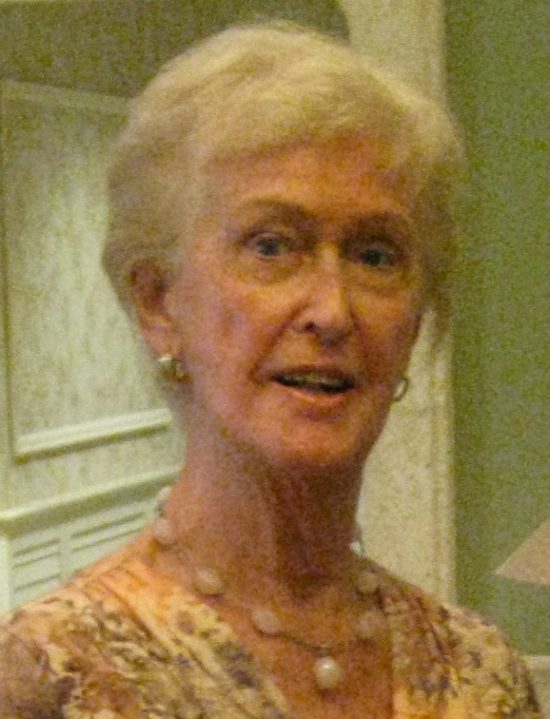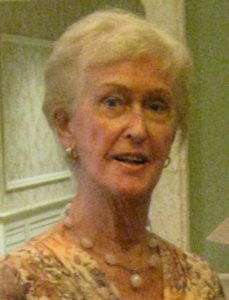Category: Personal Reflections
Posted by Dr. El - November 12, 2018 - Business Strategies, Dementia, McKnight's Long-Term Care News, Motivating staff, Personal Reflections, Resident care

Here’s my latest article on McKnight’s Long-Term Care News:

I headed to the 2018 LeadingAge convention last week looking for a fix of long-term care enthusiasm and that’s exactly what I got.
I met up with old colleagues, put faces to voices I’d spoken to for years and wandered through the expo hall catching snippets of conversations that might be exciting only to long-term care professionals.
PDPM
Armed with a large cup of black coffee, I attended an early morning seminar on the Patient-Directed Payment Model (PDPM), mostly so I’d know what everyone was freaking out about at work. “Are there any payment adjustments for residents with behavioral health problems?” I inquired of the speakers. “No,” came the reply.
Facilities will continue to have to manage residents with anxiety, substance abuse and other difficult and time-consuming behaviors without financial remuneration through PDPM. For those looking for immediate answers, consulting psychologists can be a good resource for staff training and local associations may be able to offer educational sessions on specific topics across facilities.
Team building
I participated in a session offered by Christopher Ridenhour, GFN entitled, “The Other Voice: Race, Class, Culture and the Other ‘Isms’ in Aging Services.”
“And you wonder why we have a staffing crisis,” he said, pointing out, for example, that attendees walking briskly through the conference hall without acknowledging one another were likely to be doing the same thing with their staff members back at home.
Ridenhour emphasized that all workers, regardless of their race, age or any other characteristic, want to be recognized and appreciated.
The session included practice exercises that highlighted commonalities between participants. I left with a new friend with whom I “LinkedIn” the next day. We were born in different countries, work in different LTC roles and have almost a decade between us, but given the directive to “tell each other your life story in thirty seconds,” we found the kind of common ground that any employer would want for their team members.
Montessori for staff
The theme of connection was echoed in a session offered by psychologist Cameron Camp, Ph.D., and his colleagues at the Center for Applied Research in Dementia on teaching Montessori techniques to staff members.

Posted by Dr. El - October 10, 2018 - Communication, Customer service, McKnight's Long-Term Care News, Personal Reflections, Resident care

Here’s my latest article on McKnight’s Long-Term Care News:

Observing the customary cacophony at the nursing station, I’d estimate that so-called “alarm fatigue” contributes to more than a few tragedies in long-term care.
Here’s one example that resulted in a lawsuit filing after a resident died when nursing staff ignored the alarm signaling that her ventilator had become disconnected.
That’s why I was so interested in a Stat news article “Anatomy of a Beep,” which focused on collaboration between Medtronic, a medical device company, and Yoko K. Sen, an ambient electronic musician. The feature describes how medical devices came to have the sounds that they do — “alarms that are easily confused and difficult to learn and don’t really tell us what’s wrong” — and efforts to create a more helpful and appealing healthcare soundscape.
While the Medtronic project is geared toward a hospital emergency department with its plethora of health monitors, long-term care operators hoping to avoid alarm-fatigue-related medical catastrophes might take note of their efforts.
Among the many sounds typically competing for the attention of nursing home staff members are ringing telephones, television sets, conversations among staff members, overhead pages, elders calling for help, chair alarms, escalating arguments between residents, completed tube-feed nutrition cycle indicators, noisy nebulizers and oxygen concentrators, exit door and elevator warnings, and call bell signals. Specialized units such as ventilator programs will blare additional alerts.
While some employees are fortunate enough to be able to move to a quieter unit to complete their duties, most must contend with a din they have limited power to change. Researchers have found that noisy healthcare environments can significantly increase workers’ level of distress.
Residents, unless they can independently ambulate, have virtually no ability to escape the hubbub, which can border on an abusive level of noise pollution and can negatively affect their perceptions of their stays. In addition, studies have shown that noise can disrupt sleep and increase the likelihood of delirium.
Consider taking a moment to listen to the soundscape of your facility. Stand by the nursing station, close your eyes and imagine that the sounds are the backdrop for your eight-hour workdays, or your life, 24/7.
Below are some adjustments that can enhance the aural environment:
For the entire article, visit:

Posted by Dr. El - October 7, 2018 - Anecdotes, Depression/Mental illness/Substance Abuse, McKnight's Long-Term Care News, Personal Reflections, Role of psychologists, Something Good About Nursing Homes

Here’s my latest article on McKnight’s Long-Term Care News:

“No,” Diane said when I showed up at her door for our Thursday session. “I don’t want to talk to you. I’m too aggravated.” She turned her head and looked out the window for a moment.
“I’m surprised.” I replied. “We had such a nice conversation the last time. Plus, being aggravated is a perfect reason to talk to the psychologist.”
She looked back at me and sighed with exasperation, “Fine! Sit down. But I’m not going to be very good company.”
“You don’t have to be a star, baby, to be in my show.” I sang the refrain to the old song, mostly on tune.
She rolled her eyes. “They’re driving me crazy here,” she began, launching into an account of her recent fall on the way to the bathroom. “And now they won’t let me do anything by myself! They’re always yelling at me to wait for them, but then they don’t come when I call for them.”
It was the same tale I’d heard from two residents in my other facility that week.
********
Maya was a frail woman in her late 70s who navigated around her room with a walker. She spent most of her time alone, crocheting colorful booties that she carefully tied onto the walker frame, which served as a display for her wares.
“Five dollars each,” she told me, when I commented on her handiwork. Her earnings, I learned several sessions later, were going to her disabled son, who came to the nursing home every few weeks to collect the money she’d made for him. “He’s a good boy,” she assured me.
Maya had been placed on the dementia unit, though she didn’t have dementia. Residents wandered in and out of her room, touching her yarn and the slippers. She yelled at them to stop, leading to chart notes saying she was agitated and eventually to a move to a different floor.
Once among residents more similar to herself and assigned to a consistent, experienced aide who took her under her wing, Maya’s mood and behavior improved considerably and we discussed concluding our sessions. I arrived for our last meeting with a $5 bill in hand and left with a beautifully crocheted pair of booties I didn’t need.
For the entire article, visit:

yarn in apile
Posted by Dr. El - July 29, 2018 - Books/media of note, Personal Reflections, Role of psychologists, Talks/Radio shows

NursingAssistantGuides.com, an educational site for certified nursing assistants, has a new podcast series featuring experts in the field of geriatrics and long-term care. The podcasts offer the chance for those considering or working toward becoming a nursing assistant to get insider information about the field. I was pleased to be interviewed by registered nurse Patricia Laramee about mental health and elder care for their most recent podcast.
To listen, click HERE and be sure to check out the other excellent podcasts on this page.

Patricia Laramee, RN of NursingAssistantGuides.com
Posted by Dr. El - July 5, 2018 - For Fun, Inspiration, McKnight's Long-Term Care News, Personal Reflections, Stress/Crisis management

Here’s my latest article on McKnight’s Long-Term Care News:

Perhaps, like me, you’ve recently had time off from work but the only break on the near horizon is a measly midweek Independence Day.
Or maybe, like a coworker of mine, you’ve scheduled your summer vacation for the last week of August and you’re holding down the fort for your coworkers in the middle of a heat wave, watching others return to work tan, energized and eager to show off their vacation photos.
Or possibly you’re just plain tired, exhibiting some of the symptoms below:
1. Wondering if the work you do really makes a difference.
2. Feeling overwhelmed by regulatory requirements.
3. Noticing every unfilled sanitizer dispenser and every chip in the wood veneer furniture.
4. Wanting to buy gifts for all the elders. (This is both a sign of and a contributor to fatigue)
5. Considering lying down on one of the resident’s beds for an afternoon nap.
If you recognize any of these signs in yourself, it’s wise to take note and to take steps toward self-care. Our work is important and the attitude with which we complete our tasks matters. Especially in jobs where we care for others, we need to “fill the well,” as the saying goes, because it’s impossible to “pour from an empty cup.”
How to get your groove back
If your vacation break is behind you, or so far ahead that you wonder how you’re going to make it, try these ideas to re-energize and add zip to your workday.
1. Complete your paperwork in a quiet corner of the nursing home patio.
2. Take up a new hobby or rekindle an interest in an old one. Tennis, anyone?
3. Take a mental health day, morning, or afternoon. For added mileage, don’t tell anyone at all.

For the entire article, visit:
Posted by Dr. El - December 21, 2017 - For Fun, Inspiration, McKnight's Long-Term Care News, Personal Reflections, Something Good About Nursing Homes

Here’s my latest article on McKnight’s Long-Term Care News:

From the 102-year-old Hulk Hogan fan to the doting, selfless caregivers doing behind-the-scenes work, there are numerous people in long-term care who inspired me this year.
Take, for example:
• The 102-year-old man, still remarkably handsome, whose favorite sport is professional wrestling and who recalls fondly the days of Hulk Hogan.
• The personal companion I encountered dusting the framed family photos on the windowsill while the blind woman she cared for was taking a nap.
• The new assistant administrator who stopped me in the hallway to introduce himself and who seemed genuinely interested in my response.
• The nurses who immediately come up with a solution to a resident’s problem and then follow through with it. (“If he wants to be down at rehab early, we’ll have the night shift get him up before they leave.”) Hallelujah!
• The housekeeper dedicated to controlling infection even though it’s been a tough year for her personally.
• The legally blind 90-year-old woman who avidly follows the news and the music scene and has a strong opinion on everything. That Gaga is great, she says. The president is not.

Posted by Dr. El - December 7, 2017 - Anecdotes, End of life, McKnight's Long-Term Care News, Personal Reflections

Here’s my latest article on McKnight’s Long-Term Care News:

I lost one of my two mothers-in-law last Monday, five weeks after she was diagnosed with pancreatic cancer. We had expected Audrey to reach 100 years of age, like her mother, but she died shortly after her 91st birthday, having spent her 90th year traveling and doing water aerobics three times a week.
Audrey had filled a hole in my life left after the death of my beloved great-aunt many years ago. Whenever I phoned my MIL, she’d answered the phone with a chipper, “Oh hello, Darling!” Emails began with the salutation, “Dear Heart,” before launching into the latest goings-on at the CCRC where she was the head of several resident programs.
After her diagnosis, she enlisted peers to take over her responsibilities, giving them her notes and training them as if they were new employees. She considered beginning a program at the care center during her brief stay, “Can you believe they don’t recycle here? I’m going to make some calls and see if we can get that started.”
She spent her last weeks shipping sentimental items to various relatives and, when she became too weak, she began instructing her sons to do the same. A steady stream of family members and friends came to say goodbye to her as she sat in her bedside chair with her makeup on and a scarf neatly tied around her neck.
It was exactly the way I’d want to go if I could have my choice.
In the days after she died, I phoned her sons and notified family members on our side of the family. I called a few of my friends and tried to get extra sleep. I confirmed my parents’ upcoming lunch invitation. I spent quality time with the cat, and with my family. I ate some chocolate.
For the entire article, visit: Elder love

Posted by Dr. El - August 4, 2017 - Books/media of note, McKnight's Long-Term Care News, Personal Reflections

Here’s my latest article on McKnight’s Long-Term Care News:

I was perusing The New York Times last week when I came upon an article about a play centering on my favorite topic — aging.
“Singing Beach,” by playwright Tina Howe, revolves around the drama that consumes a family when confronted with the need to place an elderly parent in a nursing home. Howe is 79 years old and lives with her 81-year old husband, who has been diagnosed with Alzheimer’s disease. She says the play was inspired by the care needs of her father years ago.
I enlisted a friend with similar interests to accompany me to the performance. “The director is a friend of mine,” I told her. “And I’m curious to see how long-term care is portrayed in the show.”
Howe, an Obie Award winner and two-time Pulitzer Prize finalist, notes that all the producers she’d initially approached turned down the script. Then, she encountered my director friend, Ari Laura Kreith, who found the subject in keeping with the mission of her company Theatre 167.
According to its website, Theatre 167 was “born in a community where 167 different languages are spoken” and it “creates, cultivates, and supports new work by artists of wide-ranging backgrounds, traditions, and beliefs” in order to provide “theatrical events that deepen and enhance our understanding of one another.”
Given our youth-obsessed culture and the paucity of “coming of old age” films and other media, this play certainly contributes a unique perspective and one that is, at the same time, universal. After all, among the 167 languages mentioned, each has speakers who are older adults and may one day be in need of long-term care.
For the entire article, visit:

Graphic image by Kelly Pooler, collage with Katsushika Hokusai’s The Great Wave
Posted by Dr. El - June 8, 2017 - Communication, End of life, McKnight's Long-Term Care News, Personal Reflections, Resident care, Stress/Crisis management, Transitions in care

Here’s my latest article on McKnight’s Long-Term Care News:

I waited outside the room until the rehab therapists finished talking to Jim, who’d been admitted to the nursing home the night before. I read over the basic info on his face sheet before my consult. Jim was an 87-year old widower with a long list of diagnoses, some very serious.
After a moment, the rehab people left and I sat across from him and introduced myself and explained my role as the psychologist.
“How are you handling all of this stress?” I asked.
“I’m dying,” he replied.
“You don’t think you’ve got much time left?”
“No.”
“Does that upset you?”
“No, not particularly.”
He seemed quite calm.
“Are you sleeping okay? Eating okay?” I proceeded to ask him all the questions I’m supposed to ask patients I meet for the first time. “What kind of work did you do?”
He quietly answered them all. After a while there was a knock on the door and his physician poked her head into the room. “Just give me a minute. I’ll finish up,” I assured her, and turned back to Jim.
“It’s one of us right after the other, isn’t it?” I commented. “Let’s stop here today and I’ll come back next week to see how you’re doing.”
He gave me a funny look and half-shrugged. The doctor knocked again and I rose to leave.
It wasn’t until I returned to work the following week, when I learned Jim had died, that I realized his look meant, “I told you. I’m dying. I won’t be here next week.”
In hindsight, I wished I’d asked Jim more specifically what he meant when he said he was dying. People sometimes make remarks like that to me in their first few days in the nursing home without meaning that they’re in the active dying process. If I’d realized I wouldn’t have more time with Jim, I would have abandoned my standard questions and focused more on being present with him.
I was even more distressed that Jim had spent his last day fielding interviews from well-meaning staff members determined to provide good care. He was patient and kind about it. I’m guessing he was a really pleasant man, maybe too nice for his own good. That might have been something we could have worked on in psychotherapy.
If I knew I was dying, I wouldn’t want to spend my last day answering the questions of strangers trying to provide services I knew I wouldn’t be around to receive. I hope I’d be more assertive than Jim about refusing care, but there must be a way to offer a better experience for a dying person than having to rely on their level of assertiveness when ill and faced with medical routines. Perhaps we could establish a “last day” protocol.
For the entire article, visit:

Posted by Dr. El - April 26, 2017 - Business Strategies, Customer service, Engaging with families, McKnight's Long-Term Care News, Personal Reflections

Here’s my latest article on McKnight’s Long-Term Care News:

Due to a series of unfortunate events, both of my previously independent parents were recently injured over the course of five weeks. In the past, I’d been the granddaughter, the niece and the daughter-in-law of someone in long-term care, but I’ve now taken on the very different role of daughter of a resident.
In between errands, trips to medical appointments and calls to the facility, I’ve been making mental notes of insights afforded me by my new perspective and that of my family members.
Here are some thoughts from someone who’s seen the long-term care world from both sides now:
• It’s worthwhile to have a pleasant and efficient receptionist. I don’t often call the facilities in which I work so it hasn’t affected me personally if the automated telephone system sends callers into a netherworld of options and hang-ups or if the receptionist is curt or bumbling.
As a family member, however, it’s tremendously reassuring to have a calm, competent individual answering questions and guiding me to the appropriate staff member.
• Visitor areas are scrutinized. While my general philosophy is that I’d much rather be in a place that focuses on emotional and physical comfort than on outward appearances, my visiting family members are definitely aware of disrepair, cleanliness levels and shabbiness.
For the entire article, visit:























